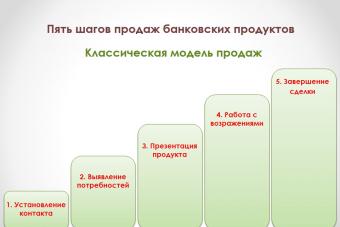Due to the heavy burden on a woman's immunity during childbearing, it is harder for her body to defend itself against infection. Most often, expectant mothers complain about the manifestations of thrush, which is confirmed after the delivery of a genital smear. In such cases, experts recommend treatment with Pimafucin - it is the safest during pregnancy. Before use, you must carefully read the information about the features of its effects, dosage and contraindications.
Pimafucin - what is this medicine?
Pimafucin is an antifungal antibacterial agent from the macrolide family, which has a bacteriostatic effect due to the binding of styrene and blocking the process of joining fungal cell membranes. The active component of the drug is a broad-spectrum antimycotic - natamycin, which acts on the cell walls of pathogenic microorganisms of candidiasis pathogens, preventing their reproduction.
Specialists use this medicine to treat not only thrush caused by candida albicans fungi, but also any other fungal infections:

- ear inflammation (otitis externa and otitis media);
- stomatitis;
- mycosis of the nail plate and skin;
- inflammation of the vulva and vaginal mucosa (vulvovaginitis, vaginitis).
It is prescribed even to pregnant women infected with fungi. It is considered absolutely safe due to the fact that it has a local therapeutic effect - it does not penetrate the circulatory system and through the placental barrier, therefore, according to medical statistics, not a single case of the negative effect of Pimafucin on the development of fetal organ systems has been registered.
Release form, dosage and effect on the body
Pimafucin is available in different dosage forms in accordance with the field of application (inside or outward). Only a doctor can choose the type and dosage of the drug or combine both forms:
- Ointment or cream 2% (1 gram contains 20 mg of natamycin) for external use, odorless, white or light yellow in color with a uniform thick texture. The cream is packaged in an aluminum tube with a volume of 30 grams, which is accompanied by a cardboard box and detailed instructions.
- Vaginal suppositories in the form of a milky-white torpedo containing 100 mg of antibiotic in 1 suppository. Additional substances: adipic acid, sodium bicarbonate, polysobat, cetyl etal, solid fat, sorbitan trioleate. The drug is packed in cardboard boxes with three 3 or 6 strips.
- Round white tablets with an enteric coating. 1 piece contains 100 mg of natamycin and 160 mg of auxiliary components: potato starch, lactose monohydrate, magnesium stearate, polyvinylpyrrolidone. Tablets are packaged in 20 pieces in dark glass bottles and cardboard packs with instructions.

Instructions for use of the drug
Experts emphasize that not a single drug, even the safest, can be selected independently. Pimafucin also has its own characteristics of use and duration of the course, depending on the form of release:
- The cream is applied to the affected areas of the skin or nails, placed in the ear canal up to 4 times a day during the course, which is individually selected by the attending specialist, until the symptoms disappear completely.
- Suppositories are treated for 5 days or a week. It is injected deep into the vagina, 1 piece per day. First you need to carry out hygiene procedures, lie on your side and wait a bit until dissolved.
- The tablet form of Pimafucin is taken for a week, 1 tablet 4 times a day.
When planning
There is an opinion that when planning a child, Pimafucin in the form of suppositories can affect the fertility of spermatozoa that enter the vagina. Experts do not confirm this information and offer to pass all the necessary tests before conception, then undergo treatment and start conceiving a healthy baby.
1 trimester
In the first three months after the onset of pregnancy, a woman's hormonal background changes dramatically and, as a result, symptoms of thrush may appear, so the gynecologist prescribes Pimafucin in the form of suppositories. Tablets in the first trimester are not recommended due to the manifestations of toxicosis.
2 trimester
Treatment of a fungal infection in the period from 4 to 6 months of pregnancy (2nd trimester) becomes much easier, because other, more potent drugs can be selected if Pimafucin does not cope with the developing disease. In addition, the baby is protected by the mucous plug of the uterus and the infection cannot penetrate to it. The specialist prescribes the drug in tablet form so that by the time of birth the child passes through the healthy birth canal and does not become infected.

Often, doctors recommend simultaneous treatment of both sexual partners and prescribe Pimafucin tablets in combination with another antifungal ointment or suppositories. The duration of treatment and additional medicines are determined by the doctor according to individual indications after passing the tests (vaginal smear, bacterial culture of urine).
3rd trimester
Experts recommend undergoing a prophylactic course of treatment before childbirth (at week 38) if there was a case of recurrence of thrush during the planning period or in the early stages of pregnancy. Also, in the last stages of gestation, intestinal candidiasis may appear, which requires taking Pimafucin for 3 days.
With thrush
Thrush does not pose a danger to the fetus, it only delivers discomfort to the expectant mother. However, there is a possibility of infection of the baby during labor, so it is necessary to treat thrush, especially since Pimafucin does not affect the intrauterine development of the child, but only eliminates fungi and the consequences of their activities.
Side effects and contraindications
With careful observance of the instructions, Pimafucin does not have a negative effect on the body, in rare cases, adverse reactions may occur. In the first days of taking the tablets, nausea, loss of appetite, and vomiting may occur. When using suppositories and ointments, local allergic reactions may occur in the form of itching, burning and redness of the skin areas treated with the drug.
Pimafucin has no contraindications and experts can recommend it during pregnancy and during breastfeeding. Limitation of use may be due to individual intolerance (lactase or fructose deficiency) or allergic reactions to any auxiliary component of the drug.
Are there analogues of the drug?
In the absence of a therapeutic effect from Pimafucin, the doctor can replace it with a drug of a similar effect, but with a different active or excipient. The pharmaceutical industry offers many analogues:

- Natamycin is a drug containing a similar active ingredient, but without auxiliary components that soften the effect of the antibiotic on the body, which is why Natamycin causes serious harm to the patient's digestive system.
- Funzol is an antifungal agent based on fluconazole in the form of a solution for infusion, powder for suspensions, capsules and syrup. It has many contraindications, including the period of breastfeeding.
- Ecofucin is a complete analogue of Pimafucin in the form of suppositories, which is cheaper (200 - 300 rubles). Ecofucin is most often prescribed to pregnant women for the treatment of thrush.
- Funginok - tablets with the active ingredient ketonazole (200 mg), are used to treat fungal infections of the skin. Prohibited for use during pregnancy.
- Terzhinan - tablets for vaginal administration with the following active substances: ternidazole, neomycin sulfate, nystanin, prednisolone sodium metasulfobenzoate. They are used in the inflammatory process, complicated by additional pathology, and also require a longer course of treatment and can cause allergies. Terzhinan is prohibited during pregnancy, because the substances penetrate the placental protection and adversely affect the fetus.
- Clotrimazole is a drug that has a more aggressive effect on the body and causes intoxication in case of overdose (we recommend reading: Clotrimazole suppositories: instructions for use in the 1st trimester of pregnancy). Not recommended for the treatment of pregnant women in the 1st trimester and breastfeeding.
- Livarol - vaginal suppositories with the active substance ketoconazole. They are prescribed in case of recurrence of thrush, if drugs of a more gentle action do not cope. Livarol can provoke allergic reactions and severe irritation of the mucous membranes and skin.
- Hexicon is an antiseptic drug based on chlorhexidine bigluconate, available in several forms (gel, suppositories, tablets) (we recommend reading: Hexicon suppositories: indications for use during pregnancy). It can be used at all stages of pregnancy, but not combined with iodine and soap solutions.
- Betadine is an antibacterial and antiseptic drug that is often used to treat wounds, burns, and postoperative sutures. The composition of the drug contains povidone-iodine, which can affect the functioning of the thyroid gland.
Many women have probably already heard that Pimafucin is prescribed during pregnancy quite often. This drug is considered an invaluable medicine that is necessary to cure a wide variety of fungal skin and mucous infections.
Pimafucin (both tablets and suppositories) is usually attributed to the group of reliable antifungal agents, or rather, to special polyene antibiotics that have the widest possible spectrum of action. For this reason, doctors also prescribe this drug for a very common fungal disease of candidiasis (thrush), which women often get sick during pregnancy. And the 2nd trimeter is considered especially dangerous.
Indications for use
Pimafucin during pregnancy is usually prescribed by a doctor from the 1-2 trimester, since it is during this period that women are most often exposed to thrush. This is due, first of all, to the fact that a woman experiences sudden changes in the hormonal background during her pregnancy. What does this mean? The immune system already in the 2nd trimester begins to weaken, and all the protective and natural forces of her body, of course, are very reduced. Accordingly, for this reason, serious violations of the normal flora (bacterial) in the vagina occur in the 2nd trimester.
Clinical picture of candidiasis
Since thrush is often a companion of a woman during pregnancy, it is important to know what the symptoms of this common disease are.
I would like to note right away that the severity of the signs directly depends on the form in which candidiasis occurs:
- Carrying.
There are no symptoms of the disease, but during the examination of a smear by doctors, fungi of the genus Candida are found in a woman. You should know that treatment must be done during pregnancy, even in the absence of signs of illness. And all because during childbirth, transmission of this infection to the baby can occur.
- Sharp form.
With this form of the disease in women during pregnancy, the following symptoms are noted:
- Burning sensation and constant itching in the vagina. Such unpleasant sensations can also be in the area of the external genital organ, which are aggravated by wearing tight-fitting synthetic shorts, after taking a warm bath, urinating, and also having sexual intercourse. That is why doctors prescribe the drug Pimafucin during pregnancy (tablets or suppositories), which relieves unpleasant symptoms and relieves the disease.
- White, very thick, cheesy type vaginal discharge. Usually odorless. The nature and extent of such secretions may vary somewhat. After taking the drug Pimafucin, these discharges stop.
- swelling and redness of the vaginal mucosa and, in rare cases, of the genital external organs.
- Pain when urinating and with every intercourse.
- Chronic thrush (or the so-called persistent candidiasis).
If an ailment is detected in the 1st or 2nd trimester, this means that, most likely, the disease did not develop during pregnancy, but before it occurred. At the same time, the symptoms of candidiasis can completely disappear. That is why women often have the illusion of recovery, only after some time the symptoms of thrush (listed above) again make themselves felt.
Treatment of the disease
During pregnancy and the presence of thrush, Pimafucin is simply irreplaceable. Doctors prescribe it to patients both in the 1st and 2nd and 3rd trimesters.
Currently, manufacturers of the drug Pimafucin produce it in four different dosage forms:
- tablets (from 20 pieces in 1 package);
- rectal suppositories;
- suppositories (vaginal);
- cream (for external use).
Treatment of thrush with candles
 As a rule, during pregnancy, doctors prescribe Pimafucin suppositories for the treatment of candidiasis. In the presence of candidal vulvovaginitis, therapeutic vaginal suppositories should be used 1 piece per day, namely before bedtime. The treatment course is three to six days. Candles, regardless of the period of pregnancy (be it 1st, 2nd, or 3rd trimester), are inserted into the vagina as deeply as possible in the supine position. Candles rather quickly melt under the influence of high body temperature, and form a foam that evenly covers all the walls of the external genital organs and the entire vagina. It is important to note that during menstruation, Pimafucin is not used for treatment. The fact is that spotting is mostly washed off the drug from the walls of the vagina and genital organs.
As a rule, during pregnancy, doctors prescribe Pimafucin suppositories for the treatment of candidiasis. In the presence of candidal vulvovaginitis, therapeutic vaginal suppositories should be used 1 piece per day, namely before bedtime. The treatment course is three to six days. Candles, regardless of the period of pregnancy (be it 1st, 2nd, or 3rd trimester), are inserted into the vagina as deeply as possible in the supine position. Candles rather quickly melt under the influence of high body temperature, and form a foam that evenly covers all the walls of the external genital organs and the entire vagina. It is important to note that during menstruation, Pimafucin is not used for treatment. The fact is that spotting is mostly washed off the drug from the walls of the vagina and genital organs.
Treatment of candidiasis with pills
If during pregnancy vaginal candidiasis systematically recurs in a woman, then the doctor, along with local treatment (when suppositories are used), also prescribes Pimafucin tablets.
Taking the medicine inside is necessary in order to quickly and completely kill the existing fungi of the genus Candida in the intestines, since they can also get from the intestines to the vaginal mucosa, thereby causing repeated infections each time. As a rule, in the 1st and 2nd trimester of pregnancy, Pimafucin tablets are prescribed by the doctor according to the following prescription: taking one piece four times a day. The treatment course consists of two to three weeks.
However, if suppositories are always used only 1 piece per day, then only a doctor prescribes Pimafucin in tablet doses during pregnancy. Of course, for any expectant mother, the best treatment option is the drug in candles.
Treatment of thrush with cream
If in the 1st, 2nd or 3rd trimester the disease in a woman has a chronic or advanced form, then the doctor can add the use of a cream to the use of the tablet form of Pimafucin. In addition, it is highly desirable to conduct the most complete examination of the woman and her spouse/partner.
It's important to know!
- It is not recommended to use Pimafucin suppositories during menstruation.
- It is recommended to exclude sexual intercourse during treatment.
- This drug is released in pharmacies only by prescription.
- Pimafucin should be stored in a place protected from sunlight.
Pregnancy is a special period in a woman's life when she has to approach the choice of medicines with the highest responsibility and strictly follow the doctor's recommendations. This principle applies to medicines for all diseases, including those that, it would seem, are "traditional" companions of pregnancy. Such common diseases include vaginal candidiasis, or thrush (more details:). For its treatment, there are many different means, however, for pregnant patients, doctors prefer to prescribe the safest of them, namely, pimafucin. Pimafucin is a broad-spectrum antifungal antibiotic that has no contraindications for use during pregnancy. In most cases, local therapy with pimafucin in the form of vaginal suppositories is prescribed for pregnant women. The duration of treatment depends on the individual characteristics of the organism and the course of the disease and can range from 3 to 9 days. The drug is injected into the vagina one suppository at night, before going to bed.
What is an indication for the appointment of pimafucin?
During pregnancy, due to hormonal changes in the body of a woman, its immune defense is weakened, the microflora of the vagina changes, and these factors create an opportunity for fungal infection. Against its background, a woman can develop inflammatory processes such as vaginitis, vulvitis or vulvovaginitis. They affect the skin and mucous membranes of the vulva and vagina, causing itching, burning and discomfort. Like any inflammatory disease, candidal vaginitis, vulvitis and vulvovaginitis adversely affect the course of pregnancy. In cases of particularly severe complications, candidiasis is the cause of thinning and weakening of the membranes of the fetus under the influence of waste products of fungi, which can lead to their premature rupture. In addition, during childbirth, a child can become infected with candidiasis when passing through the birth canal. Therefore, the doctor needs, on the one hand, to prescribe an effective treatment for thrush, and on the other hand, to choose a drug that will not adversely affect the fetus and the course of pregnancy. Such a drug is pimafucin. Its active substance, natamycin, has a local effect on fungal cells, disrupting the integrity of their membranes and thereby causing the death of microorganisms. At the same time, the drug itself has only a local effect and is not absorbed from the surface of the skin or mucous membrane into the blood, that is, it does not penetrate the uteroplacental barrier.
How is pimafucin therapy carried out?
There are several dosage forms of this drug. Treatment with pimafucin during pregnancy is most often carried out locally. The perinatologist prescribes to a pregnant woman therapy with pimafucin vaginal suppositories containing 100 mg of natamycin. In this case, the suppository is inserted deep into the vagina once a day before bedtime in the supine position. After the introduction of the suppository, it is advisable not to get up for several hours, since under the influence of body heat the suppository quickly dissolves with the formation of a foam that evenly covers all the mucous membranes. If you stand up at this moment, the active substance will quickly flow out of the vagina and the medicinal effect will be minimized. In most cases, one treatment course of pimafucin suppositories is enough to cure genital candidiasis.
However, in some cases, the fungal infection proceeds in a generalized manner, that is, in addition to the vagina, it also affects the internal organs. With a generalized candidal lesion of the body, the fungi are located in the walls of the intestine, from where the constant infection of the genital organs occurs. In this case, local treatment alone will be ineffective, so it is combined with systemic therapy, prescribing pimafucin tablets in addition to suppositories. Tablets are sold in packs of 20, each tablet contains 100 mg of natamycin.
In order to avoid recurrences of candidal lesions of the vagina, it is necessary that the woman's partner is also treated. Even if he does not have any symptoms of thrush, the causative agents of this disease can be under the foreskin, on the head of the penis and, once on the vaginal mucosa, begin to actively multiply there. Therefore, the partner of a woman who is being treated for candidiasis is advised to conduct topical therapy with pimafucin in the form of a 2% cream. The cream is applied to the skin and mucous membranes once or several times a day. Treatment continues for several days after the disappearance of the symptoms of the lesion in both partners.
With a strong weakening of the immune system, candidiasis sometimes affects the mucous membranes of the oral cavity. In this case, doctors recommend using pimafucin in the form of a 2.5% suspension for topical treatment. However, such a lesion of the oral cavity is rare in adults.
What is the duration of treatment with pimafucin during pregnancy?
The duration of local treatment with suppositories is determined by the intensity of the disease and can range from 3 to 9 days.
With systemic therapy, it is recommended to take 1 tablet of pimafucin 4 times a day for 7-10 days. Pimafucin does not have a teratogenic effect on the fetus, does not penetrate from the intestine into the mother's blood, that is, does not cause any harm to the child, therefore its use is allowed throughout the entire period of pregnancy.
Quite rarely, there is a side effect of the drug when taken orally, which manifests itself in the form of nausea and diarrhea. It does not require discontinuation of treatment and passes by itself after a while. When applied topically, a feeling of discomfort and burning sensation is possible.
An overdose of pimafucin does not cause any toxic damage to the body.
The only contraindication to the appointment of pimafucin is the patient's hypersensitivity to the components that make up the drug.
Pimafucin during pregnancy: Reviews
In some cases, treatment with pimafucin may not give a positive effect, but most often this happens when the drug is taken for an insufficiently long time.
Nevertheless, in the vast majority of cases, pimafucin, if not completely destroying the causative agents of a fungal infection, then significantly facilitates its course, eliminating unpleasant and even painful symptoms. Here are the reviews of several women about the treatment with pimafucin:
Ekaterina I've dealt with thrush before pregnancy. But then she took diflucan, which helped her well. In the first weeks of pregnancy, noting the familiar symptoms of thrush, Ekaterina wanted to cure her in the usual way, but before taking the Diflucan tablet, she decided to read the instructions for the drug. Seeing that this drug is contraindicated for use during pregnancy, the woman did not self-medicate, but went to the doctor. She was prescribed a six-day course of pimofucine suppositories. Ekaterina felt relief after the very first day of treatment. After a full course of suppositories, the symptoms of thrush did not recur until the 30th week of pregnancy. At this time, the disease relapsed, and Ekaterina was prescribed complex therapy with pills and suppositories of pimafucin. After a week of treatment, the symptoms of thrush disappeared and did not reappear.
Kseniya I first encountered thrush at the 19th week of pregnancy. The itching and burning sensations were very unpleasant. The doctor prescribed a woman pimafucin suppositories for a three-day course. The symptoms of thrush disappeared, but the improvement was short-lived. Two weeks later, Ksenia again came to the doctor with complaints about thrush. This time, she was prescribed pimafucin in suppositories for 6 days, in tablets, 1 piece 4 times a day for a week, and recommendations were given for treating her husband with 2% pimafucin cream. After all the doctor's prescriptions were fulfilled, the thrush no longer bothered Xenia.
Svetlana did not notice any unpleasant symptoms, but at a scheduled appointment at the antenatal clinic at 12 weeks of gestation, the perinatologist informed her that a significant amount of Candida fungus was found in the smear, and treatment was needed. Svetlana did not follow the doctor's recommendations, as she was afraid of harming the child with "extra chemistry". After a few weeks, she began to notice a copious cheesy discharge, which frightened her. After visiting a doctor whom she completely trusted, the woman asked for the safest medicine possible. She was recommended topical treatment with pimafucin suppositories for 6 days. This time, Svetlana followed all the doctor's instructions, and the treatment helped her.
Pimafucin during pregnancy is one of the safest drugs, so you should not question the recommendations of a doctor who prescribes a course of pimafucin to a pregnant woman. In the vast majority of cases, this drug will help the expectant mother solve her problems, and most definitely will not cause the slightest harm to the fetus.
The latter disease is better known as thrush. It is known that normal physiological changes and hormonal changes in a woman's body during pregnancy contribute to the development of thrush, and it is observed in almost half of pregnant women. Therefore, Pimafucin during pregnancy in most cases is prescribed for the treatment of this particular ailment.
Contraindications and side effects
Pimafucin should not be used by pregnant women if allergic reactions occur. But, as practice shows, such cases are quite rare.
Also, when using the drug, side effects may occur, which should disappear over time. Treatment with tablets can cause nausea, vomiting, diarrhea in a pregnant woman, and with candles and cream - burning, itching, redness, slight swelling at the site of application.
The appearance of these reactions is not a reason to discontinue the drug. However, if they cause significant discomfort, the pregnant woman should inform the doctor about them and clarify the possibility of using Pimafucin further.
Impact on the pregnant woman and the fetus
At the moment, Pimafucin is considered the safest remedy for treating thrush in pregnant women, since no negative effects of the drug on the pregnant woman and the embryo (fetus) have been identified.
Upon entering the body, Pimafucin is practically not absorbed into the blood, therefore it does not affect the condition and development of the embryo (fetus). Therefore, it can be used at any stage of pregnancy. At the same time, preference is given to treatment with candles and cream, rather than tablets.
Dosage and application features
The course of treatment with Pimafucin during pregnancy is determined by the doctor in each case. Usually, with a mild degree of thrush, pregnant women are prescribed 1 suppository (100 mg) at night for 3-6 days. Candles are inserted deep into the vagina in the supine position.
In severe cases, longer treatment with suppositories together with tablets is possible: 1 tablet (100 mg) 4 times a day for 7-10 days.
Reviews about the drug
Judging by the reviews, Pimafutsin helped someone, but not someone. So, one pregnant woman got better after taking several suppositories. Others needed longer treatment, while others did not help at all, or the effect of using the drug lasted only a few days, and then the thrush arose again.
It is worth noting that none of the pregnant women mentioned the occurrence of allergies or side effects. When using suppositories, only increased vaginal discharge, which was the remnants of suppositories, caused concern.
Also, some doctors consider Pimafucin an outdated and ineffective drug and do not prescribe it to pregnant women.
What to replace
In addition to Pimafucin, there are other drugs for the treatment of thrush during pregnancy. The most popular of them:
- Sertaconazole, Econazole, Zalain - can be used only in cases where the benefits of taking them outweigh the risks;
- Livarol, Clotrimazole, Gino-Pevaril, Neo-penotran - can not be used in the 1st trimester, but in the 2nd and 3rd with a predominance of benefit over risk;
- Terzhinan - it is possible to use from the 2nd trimester, in 1 - if the benefit outweighs the risk;
- Gynoflor, Normoflor - allowed throughout pregnancy, are complexes of lactobacilli to normalize the microflora of the vagina, recommended for the complex treatment of thrush.
Thus, of the presented drugs, there is no one that is completely safe for a pregnant woman and an embryo (fetus), and bacterial complexes, if used separately, and not in combination with other antifungal drugs, as a rule, do not have sufficient effectiveness.
For the treatment of thrush, pregnant women should not forget about other non-drug methods, and these are:
- a diet that limits the use of muffins and sweets and includes foods with bifidobacteria (kefir, yogurt), vegetables;
- hygiene of the genital organs, aimed at eliminating favorable conditions for the development of fungi (removal of excess moisture after washing, the use of cotton underpants);
- baths with infusions of herbs (chamomile, calendula).
All these activities, unfortunately, will not replace the pregnant woman taking drugs, but will contribute to a speedy recovery.
The price of the drug
Pimafucin belongs to the drugs of the middle price category. Its price depends on the form of release and the quantity in the package.
Estimated cost of Pimafucin in pharmacies:
- in the form of a cream 2% 30 g - 250-300 rubles;
- in the form of suppositories 100 mg No. 3 - 270-310 rubles;
- in the form of suppositories 100 mg No. 6 - 490-620 rubles;
- in the form of tablets 100 mg No. 20 - 450-550 rubles.
In anticipation of the baby, many women are faced with thrush - a candidal lesion of the vaginal mucosa. This disease is caused by fungi of the genus Candida. Normally, they can be present in the vagina of a healthy woman, but in a minimal amount. With thrush, their share in the vaginal flora increases significantly, and this condition must be treated. However, the treatment of diseases of the expectant mother must be known to be effective and not affect the fetus. But how does Pimafucin meet these criteria during pregnancy?
Often candidiasis occurs in women "in anticipation of a miracle." At this time, it is undesirable to use drugs, but it is dangerous to leave the situation without treatment. The tendency to thrush in pregnant women is explained by a decrease in local immunity and a change in the endocrine background. As a result, expectant mothers often have to deal with the disease several times during the entire period of gestation. And gynecologists in these cases prescribe Pimafucin for women.
The composition and properties of the drug
The active substance in all forms of the drug is natamycin. It is an antibiotic and in addition has a pronounced antifungal activity. It is successfully used to treat candidal lesions not only of the vagina, but also of the intestines, as well as other organs and parts of the body. To natamycin, resistant fungal microorganisms have not yet been recorded. This is especially important in the treatment of candidal colpitis, which tends to recur during pregnancy.
Natamycin, when meeting with candida, binds to the lipids of their cell wall. This leads to a violation of the permeability of cells and the death of fungi. The substance acts locally, is not absorbed into the tissues and does not enter the systemic circulation. Thanks to this property, it can be safely used even in the 1st trimester of gestation - it will not affect the formation of the baby's organs in any way.
Dosage forms
"Pimafucin" is available in three main forms. Therefore, depending on the type of affected tissue and the severity of the pathological process, you can choose the best option for the treatment of candidiasis.
- Tablet form. Such a medicine dissolves and acts in the large and small intestines. One piece contains 100 mg of natamycin. The package includes 30 tablets.
- In the form of suppositories. One suppository (single dose) also contains 100 mg of the active ingredient. The package contains three vaginal suppositories.
- Tubes with cream. Produced in tubes of 30 g with a concentration of natamycin 2%. One gram of cream contains 20 mg of active ingredient. The cream is used to treat skin diseases caused by fungi.
The optimal form and treatment regimen can only be prescribed by a doctor individually in each situation.

Indications for the use of "Pimafucin" during pregnancy
The appointment of "Pimafucin" is justified if there are the following indications for its use.
- Fungal infection of the genital organs. Most often, the drug is used to treat candidiasis of the vagina and vulva.
- Fungus of the intestinal mucosa. Occurs in pregnant women with immunodeficiency states. For example, with HIV, blood diseases, tuberculosis, with regular use of cytostatics and hormonal drugs (with systemic lupus erythematosus and similar connective tissue diseases).
- Candidal inflammation of the skin and its appendages. More typical for women with diseases leading to deep immunodeficiencies. With the defeat of the nails can be found in relatively healthy pregnant women.
- Systemic fungal infections. This is extremely rare during pregnancy. In this case, "Pimafucin" is used in the form of tablets inside, as well as ointments and suppositories.
- For the prevention of candidiasis. For this purpose, "Pimafucin" during pregnancy can be prescribed with long-term antibiotic therapy.
Natamycin is not absorbed into the systemic circulation, so the likelihood of it getting to a developing baby is excluded. Therefore, Pimafucin is one of the safest and most effective drugs, which is confirmed by numerous reviews of gynecologists who regularly use the drug in their practice.
Treatment regimens
Schemes of drug therapy and its dosage are not the same. They depend both on the form of release of the drug, and on the disease for which the remedy is prescribed.
- Tablets. The average dose is 400 mg / day, which corresponds to taking one tablet four times a day. For different diseases, the duration of treatment will be different. With candidal lesions of the intestine, it is about 15-20 days, with nail fungus - up to two to three months, in the complex therapy of other diseases, the course lasts about a month.
- Candles. With uncomplicated candidal colpitis, a three-day course of treatment is sufficient with the use of one suppository at bedtime. With a recurrent variant of the disease, the course of treatment can be extended up to a week. Suppositories are recommended to be administered lying on your back, placing the suppository deep into the vagina. After that, you need to lie down for 10-15 minutes to completely dissolve the drug.
- Cream. It is used for candidiasis of the external genitalia. It can be used for application to nails infected with a fungus, as well as for skin pathologies. On average, it is necessary to lubricate the affected areas up to three to four times a day with a thin layer of cream. The duration of treatment is determined by the doctor.

Contraindications
"Pimafucin" can be used for the treatment of candidal lesions of the skin and mucous membranes for all pregnant women. Do not use the remedy only with a fixed allergy to the drug or its other components. There are no other contraindications.
Side effects and complications of admission
Cream, tablets and suppositories "Pimafucin" during pregnancy are well tolerated. The instructions for use indicate the following possible side effects:
- nausea when taking pills;
- loosening of the stool;
- burning on insertion of suppositories.
All these phenomena are short-term, and pass within a few days.
"Pimafucin" can be used with other drugs, as it does not interact with them.
Analogues
There are complete analogues of the drug with the same active substance and dose, as well as drugs similar in effect, but with a different active substance. Identical medicines produced only in the form of candles:
- "Natamycin";
- "Primafungin";
- Ecofucin.
If you need to treat vaginal candidiasis during pregnancy, you can choose other drugs.
- In the early stages. Suppositories "Ginezol", "Zalain", "Betadine" are allowed.
- In the 2nd trimester. It is possible to use suppositories "Polygynax", "Terzhinan", "Clotrimazole", "Ginezol".
- In the 3rd trimester. Practically all anti-candidiasis drugs are allowed locally.
Thus, treatment with "Pimafucin" during pregnancy will save a woman from the manifestations of thrush and other candidal lesions, without endangering the health of the baby. The drug has practically no contraindications and side effects, well tolerated. Candidiasis fungi do not develop resistance to Pimafucin, so it can be used repeatedly.





